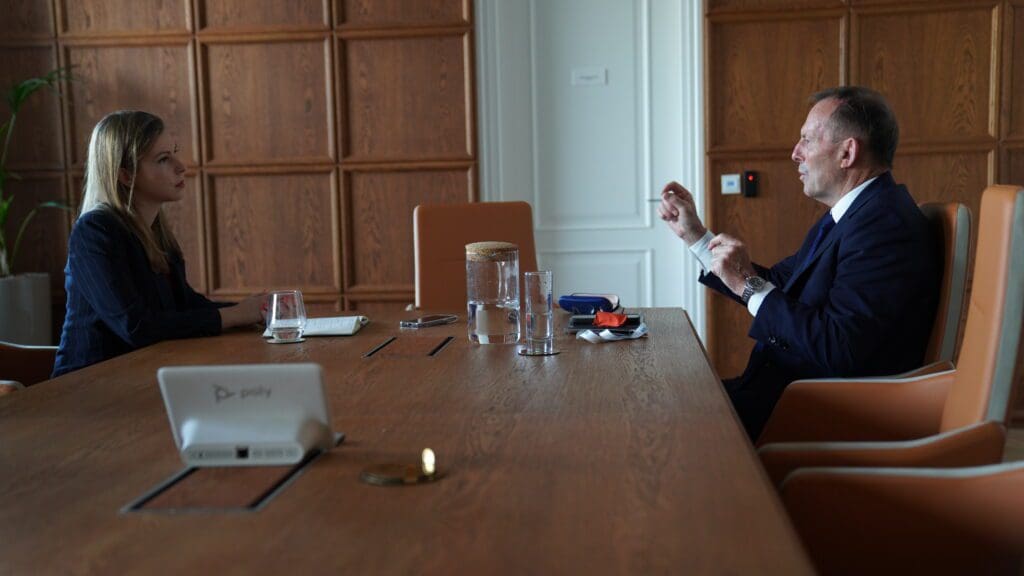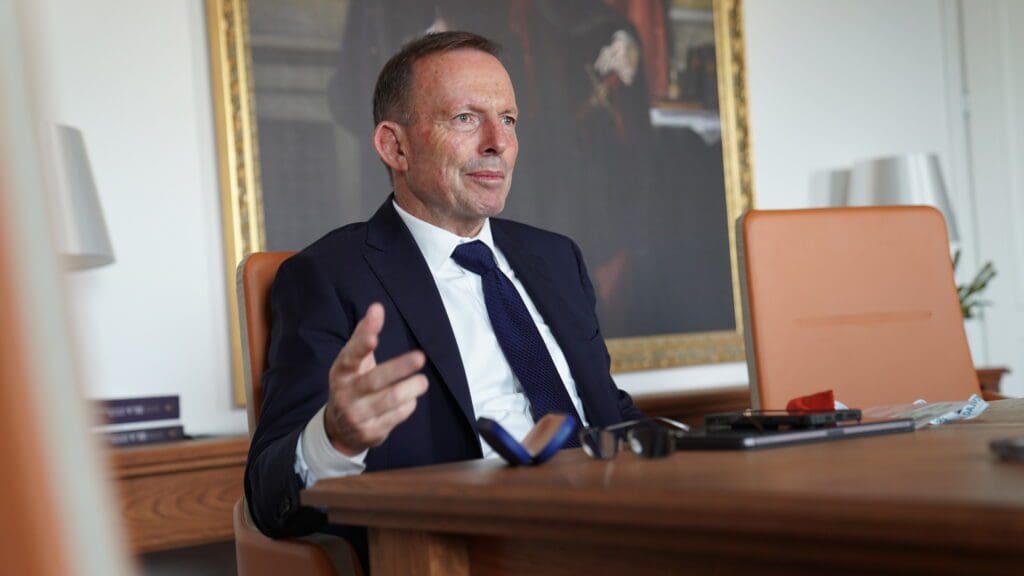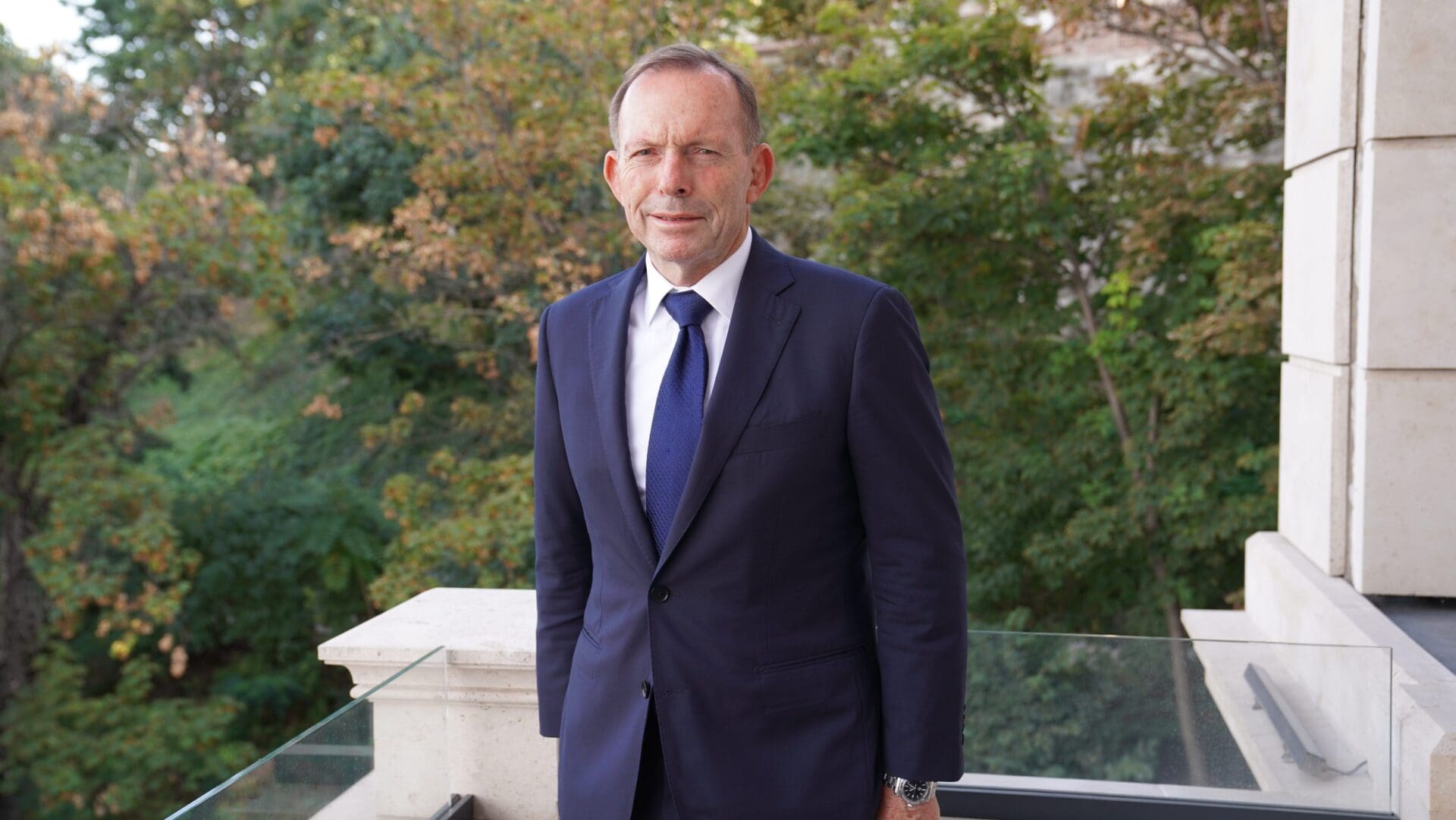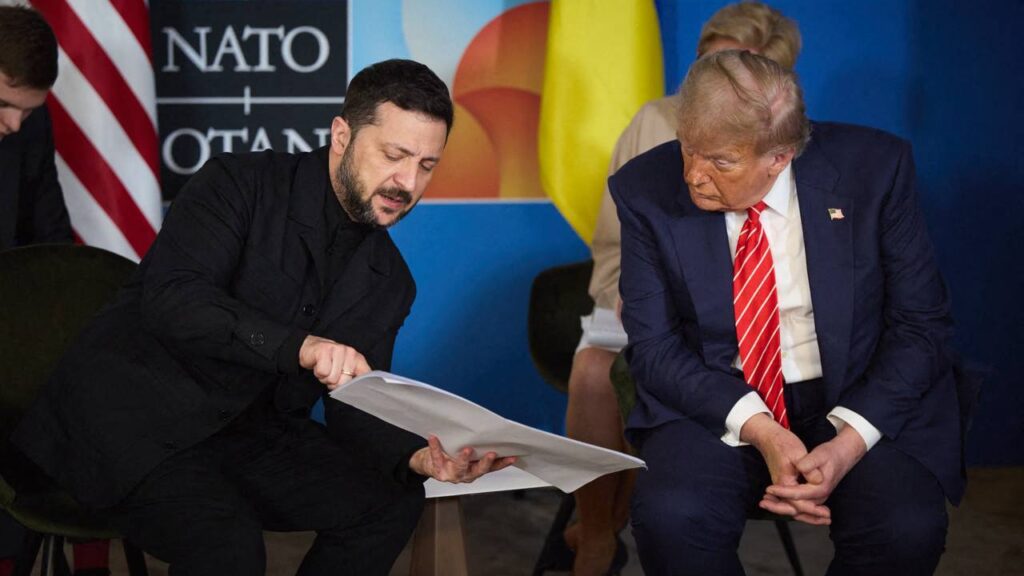The Honourable Tony Abbott AC, former Prime Minister of Australia, made a recent visit to Hungary during which he addressed The Third Danube Geopolitical Summit organized by the Danube Institute. The visit provided Hungarian Conservative with an opportunity to interview the former head of government.
What are your impressions of this conference so far? This isn’t your first time attending.
I think this is the fourth time I’ve been to a Danube Institute conference. And I really want to congratulate the institute, John O’ Sullivan and all the institute team for putting on such an interesting and eclectic event. Budapest has become quite an intellectual centre for a group of English-speaking intellectuals, who I think have been attracted by, I guess, Hungary’s history and general cultural appeal, but also by the success of the Orbán government.
Can you guess the reason behind this?
My guess is that Viktor Orbán is one of the very few contemporary leaders who strongly supports the faith, family, and country notions which have long been at the heart of conservatism everywhere, but which tend to be in eclipse, particularly in Western Europe. So, he’s been a very significant leader, not just in terms of his political success here in Hungary, but in terms of the
influence he’s had on conservative political thinking right around the world, especially in the Anglosphere.
In a previous interview, you even described Prime Minister Viktor Orbán as the Margaret Thatcher of Hungary.
That’s good, I’ve nearly forgotten it (laughs).
You said at the time it was because conservatives look at him wishing they had leaders like him…
Yes, I regard Orbán as, in some respects, reminiscent of Margaret Thatcher. But I also think that—in an important respect—
he’s actually Trump in that he is a very forthright centre-right leader, but without the downsides of the 45th US President.
I’m not saying that Trump was all bad as president. But even the good things that Trump did were accompanied by a narcissism, a gratuitous aggression and not often without a lot of intellectual substance, while Orbán has got about the business of being a successful centre-right leader with a lot more grace and a lot more intellectual heft.
Let us move to another topic, migration policy issues. In recent days, we witnessed over 8000 people arriving in Lampedusa in just three days. Ursula von der Leyen visited the island and stated that ’irregular migration is a European challenge, and it needs a European answer’. What is your reaction?
It’s a statement of the obvious in one sense, but it’s also a statement of impotence in another sense, because the EU has monumentally failed for the last seven years to come to grips with this problem. And any country that waits for an EU solution will wait forever. And this was Viktor Orbán’s profound insight back in 2015 when this crisis first occurred. He didn’t wait for the EU to give its blessing. He did what was necessary for the well-being of Hungary. He built a fence and made it absolutely crystal clear that whatever problems people might be fleeing thousands of miles away, they had no right to be trespassers in someone else’s country, particularly given that they passed through many countries where they could have been safe long before they got to Hungary. So Orbán did the right thing then—and he’s continuing to do so.

So, do you think that the main problem is the lack of coordination on an EU level?
Not really. I would rather say that the problem is that
no one at this point in time is taking effective action to stop the boats from coming from North Africa to Europe across the Mediterranean.
And when I was Prime Minister in Australia back in 2013 and 2014, we didn’t use our navy as a search and rescue service for poor people. We didn’t use our navy in ways that made us effectively acting as an accomplice for the people smugglers; we used our navy to take aboard people who were in trouble in the open aea. But if they had no right to be there and no right to enter Australia, we kept them at sea. And when the circumstances were right, we put them on board of unsinkable orange life rafts with just enough fuel to get to Java and sent them back from where they’d come.
How should a government with a similar approach—for example Hungary—respond to allegations of xenophobia when they reject illegal immigration?
In the first place, governments have a duty to their own citizens to maintain the character of the country and not to have the character of the country changed forcibly by outsiders.
Could you please elaborate on that?
Well, all what we’ve been previously discussing is just completely wrong. I mean, no one has a right to turn up in someone else’s country and demand residency. Now, if they are immediately fleeing serious risks to their lives, yes, they can claim sanctuary. But for them to be genuine refugees, as opposed to would-be illegal migrants, they’ve got to seek sanctuary in the first available place. And the vast majority of those coming into Europe are not seeking sanctuary in the first available place. They aren’t even seeking sanctuary at all, most of them, they’re seeking a better life.
And understandably enough: who would all want to live in Europe as opposed to most parts of Africa or the Middle East.
But the desire for a better life does not entail an obligation on a country other than your own to supply it. And on the contrary, governments and leaders have a duty to their own citizens to maintain the character of the country. And any country which is subject to uncontrolled illegal immigration, is ultimately suffering a form of peaceful invasion. And over time, its character will be changed, possibly very substantially, and that’s wrong.
Moving on to family policy issues, can you share your views on supporting reproductive relationships? How in your view should the Hungarian government address the allegations of being homophobic due to their family policy?
Well, look, I’m not familiar with all the details of Hungary’s family policy, but I certainly understand that what the Hungarian government is trying to do is a sort of a natalist position. They’re keen to encourage Hungarian families to have more children and they acknowledge that the more children you have, the more resources you need. And as I understand it, they’re adjusting the tax and welfare policies to ensure that families with more kids have appropriately more income as a result of the tax and benefit system. This is a very good thing. When I was a very new member of parliament, in my maiden speech in fact I said that Australia’s new poor were middle income families with children.
This is because our tax and benefit system did not adequately account for the fact that—for argument’s sake—a single breadwinner with a yearly income of 50,000 dollars is in a much better position than a breadwinner with a dependent spouse of two dependent kids on the same income. And our tax and benefit policy needed to accommodate the reality of how much dependence there was on any particular income. And that’s exactly what I think Viktor Orbán has tried to do. Now as I said, I’m not familiar with the fine details. But I think it makes a lot of sense trying to ensure that for example a household of four people has roughly comparable resources per head at a given level of income as a household of one person.

This topic is strongly connected with the debates about how to tackle demographic decline. A common conservative argument is that preserving the traditional family model is key to reversing the demographic crisis. Do you agree or disagree?
Well, it’s part of it. There’s no magic bullet obviously, but it’s part of it. I mean, we know from repeated experience that if you subsidize a particular behaviour, you get more of it. If you subsidize bad behaviour, you get more bad behaviour. If you subsidize good behaviour, you get more good behaviour. And I think making it easier to have children is an important part of a sensible family policy.
Fair enough. Moving on to Hungary’s foreign policy, Balázs Orbán, the political director for the Prime Minister, mentioned that Hungary should have its own globalization strategy, focusing on ’maintaining connections with as many countries and market players from around the world as possible’. Do you agree with this approach, considering Hungary’s aim to escape the middle-income trap this decade?
Yes. I think Hungary is perfectly right in wanting to develop its economy to the fullest extent and perfectly reasonable in wanting to trade with other countries on the best possible terms to get investment from other countries on the best possible terms. I think all that’s perfectly reasonable and right. I do think though that it’s important to be conscious of strategic reality, and
there is now a new cold war between the dictatorships, principally Beijing and Moscow, and the democracies of which Hungary is proudly one.
So, while I absolutely understand why the Hungarian government might be keen to get Chinese investment, and for argument’s sake, keen to continue to get Russian gas, I think it has to find out the possibilities of diversifying away from reliance on Russia for energy and the maintenance of a reasonably pragmatic investment regime to ensure that any investment from China is not stealing technology, and is not making Hungary economically dependent. I think that’s important.
One last question. As a politician coming from the ‘land down under’, how do you foresee the Russo-Ukrainian war concluding? Should we anticipate a resolution in the coming months, years, or is peace a distant possibility?
Well, the important thing is for it to end well—and that’s the most important thing. Yes, obviously, for the long-suffering people of Ukraine, we want it to end soon. But it has to end in a defeat for Russia. Russian aggression cannot be allowed to succeed. If Russian aggression succeeds in Ukraine, Russian aggression will soon manifest itself against other countries, the Baltic states, perhaps Poland. Putin’s objective clearly is to recreate the Russia of Peter the Great. And that means that in the end, the whole of Eastern Europe will fall yet again under Russian domination. However, given that Eastern Europe has done so much to escape Russian domination and has done well brilliantly in the absence of Russian domination, the last thing we should want is to wind back the clock.








